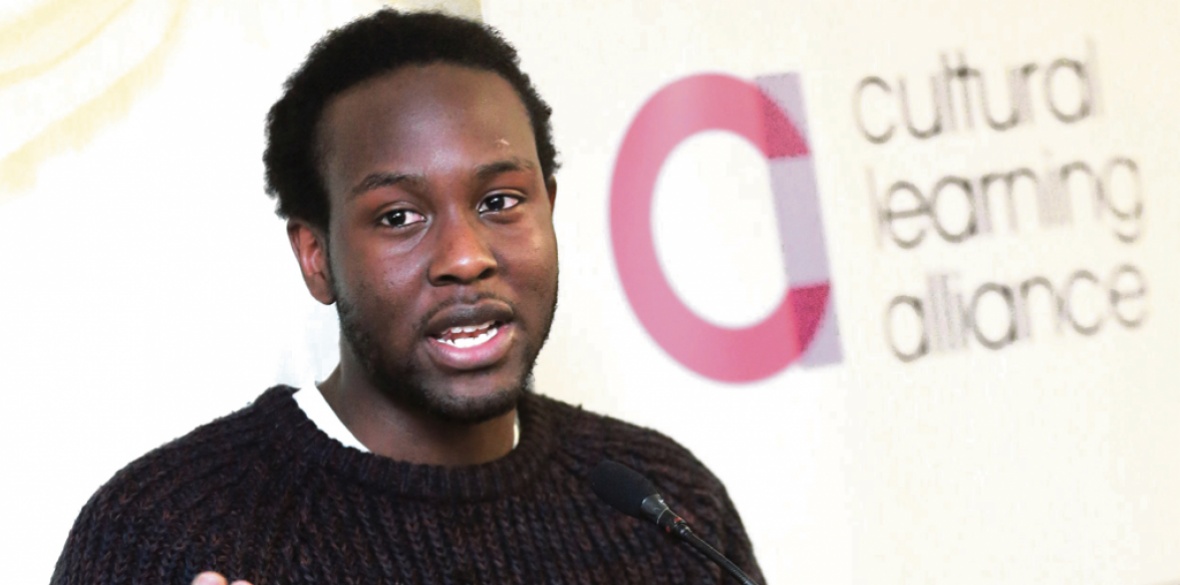This is the last article you can read this month
You can read more article this month
You can read more articles this month
Sorry your limit is up for this month
Reset on:
Please help support the Morning Star by subscribing here
“CULTURE is ordinary — that is where we must start,” Marxist writer and critic Raymond Williams once wrote. This means that culture includes not just the arts but much more. It embraces all those learned human activities which give life purpose, meaning and value and in which we engage for enjoyment, entertainment and enlightenment.
As well as the arts, culture includes sport, religion, eating and drinking, fashion and clothing, education, the media and many other popular activities. Fundamentally, cultural activities are social, unifying and egalitarian. They assert our common humanity and solidarity against divisions of class, gender, race and other social divisions caused by capitalism.
And cultural activities, especially art, can directly inspire and support radical change in the real world.
Taking part in cultural activities as consumers and producers is not some optional extra. It is absolutely essential to our development in sustaining health, well-being and happiness, including our freedom from oppressive political systems and exploitative economic arrangements.
But class-based divisions, founded on unequal property ownership, constrain or prevent our enjoyment of cultural activities which, though they may be fundamentally liberating and social, are limited, appropriated and privatised in societies divided by class.
Throughout history, tiny minorities of dominant social classes have tried, and often succeeded, in turning culture into circuses to go with the breadcrumbs thrown from the tables of the rich and powerful. Owned and organised undemocratically, culture becomes inaccessible, costly and irrelevant. It legitimises, conceals or ignores oppression and exploitation and is used to promote diversionary and reactionary political messages and values.
So a continual struggle goes on to develop and sustain a cultural commons for the many, not the few. Like our economic and political struggles for fair wages and ownership and control of essential goods and services like the railways, the utility companies and the NHS, we face a struggle against the co-option, misuse and appropriation of cultural activities.
In sport, high ticket prices for football games exclude families on tight budgets from attending together and there is the growth of corporate boxes at events and undemocratic ownership and control of clubs and the way that sport is organised. There's too much funding for elite sport and not enough at grassroots level and there are corrupting pressures of drugs and cheating, which inevitably follow from stressing the capitalist values of competitive individualism.
The private ownership of the means of communication by gigantic media monopolies like Google and Facebook appropriates information about us in order to practise surveillance and influence our commercial and political choices.
Companies like Sky, Netflix, Disney and Fox are dedicated to making profits rather than meeting human need. State-owned media like the BBC, which supports and legitimises the economic and political status quo, is institutionally biased against radical politicians or newspapers, the Morning Star being a prime example.
There are terrible effects of profit-seeking capitalist corporations on the social cultures of eating and drinking, with what we consume loaded with sugar, salt and fats, causing immense mental and physical health problems.
In the arts, inaccessibility, obscurity and vapid spectacle dominate, with state funding blatantly unequal. Money that comes from our taxes and our Lottery tickets is overwhelmingly focused on cultural provision in the London area, which benefits mainly the already well-off and tourists.
“There is a poet, author, singer, pianist, actor, playwright, artist in every single person,” Jeremy Corbyn has said. But for working-class people wishing to have an arts career, it’s getting harder to become a musician or actor or writer without rich relatives to support you.
Cuts and curriculum changes in education mean our children are being deprived of the chance to learn how to appreciate and participate in the artistic, sporting and other cultural educational activities at primary and secondary level.
And as part of austerity economics, libraries, museums and other cheap or free cultural facilities are being cut back, across the country.
So what would a democratic and socialist culture policy of a Labour government look like? An inclusive approach to culture is essential if we genuinely want to transform the world for the benefit of working people. Culture policy must cover activities which matter to working people and which can attract the support of the labour movement so that culture is seen as part of the social wage for everyone.
There should be a commitment to dismantling the barriers that constrain or prevent ordinary people from accessing culture, particularly that which is publicly funded, based on cost, geography, class and social exclusion. People must have an equal opportunity to join in and enjoy all the arts and cultural activities.
Arts education, its appreciation and practice, should be embedded into the national curriculum so that all children have the opportunity to access the best cultural and creative education.
There has to be legislation to ensure that leaders of cultural institutions — not only theatres, art galleries, concert halls and poetry publishers but sports clubs, churches and broadcasting and media corporations – seek to engage with all sections of the community, particularly the least well-off.
And the barriers that exist in the art and cultural sectors for working class people need to be investigated and removed and legislation introduced guaranteeing equality of access to cultural and creative work.
Reforming the funding, ownership and control of the media — newspapers, online platforms, TV and radio — would create space for progressive and alternative voices and there has to be a shift in public spending on recreation and sport towards more support for grassroots participation.
Now is the time to seize the opportunity to create a comprehensive package of culture polices for the many not the few.
Mike Quille is chair of Culture Matters, culturematters.org.uk










